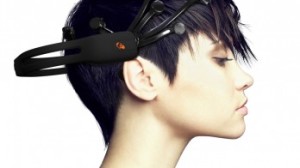
Can Brain-Zapping Technology Boost Learning?
Can Brain-Zapping Technology Boost Learning?
April 1, 2014
The Connectivist — This may sound like an April Fool’s joke, but it’s not. There is new research that suggests that mildly electrocuting your brain could make you smarter.
In fact, there’s a company in the United States that is selling gaming headsets that “let the force of electricity excite your neurons into firing faster.”
In a paper published last week in The Journal of Neuroscience, Vanderbilt University researchers announced they had proven it’s possible to boost human learning potential through a treatment called transcranial direct current stimulation (tDCS).
 The study’s participants were given 20 minutes of electrode stimulation, after which they were asked to perform a trial-and-error task.
The study’s participants were given 20 minutes of electrode stimulation, after which they were asked to perform a trial-and-error task.
The researchers concluded that the effect was noticeable: volunteers made fewer errors compared to tasks performed before stimulation.
So what is it about electrical stimulation that triggers positive changes in the way the brain works?
“They think it accelerates plasticity,” or the ability of neurons to regenerate and change function, says Dr. Opher Donchin, a senior lecturer in BGU’s Department of Biomedical Engineering.
He adds that it matters greatly which area of the brain is stimulated, because different cortexes seem to yield different results. “For example, stimulate the cerebellum and you might get faster motor learning,” he says.
Results from numerous clinical trials and animal studies are less than clear-cut: Some of them conclude that tDCS has no discernable impact, while other researchers remain hopeful in the practice and claim to be refining and perfecting its application.
Dr. Donchin, a computational neuroscientist who studies movement control and motor learning, would like to see the end of such discrepancies in results. He is conducting research on mice to study how tDCS affects their neurons.
Results from animal testing have typically proven to be more consistent than human trials across the board. From his trials, Dr. Donchin is hoping to figure out “which neurons are affected and why,” which he says could have an influence on administering tDCS.
Read more of this article by Benjamin Plackett on The Connectivist website >>



